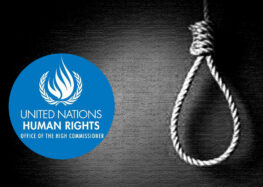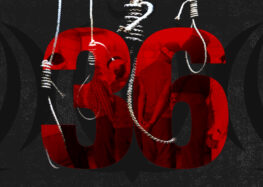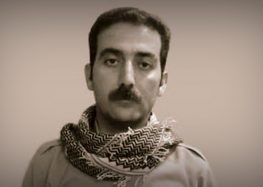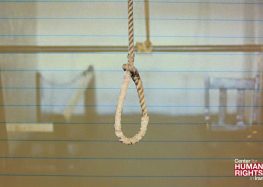More Than 150 Members of Iran’s Parliament Call for Ending Execution of Petty Drug Traffickers
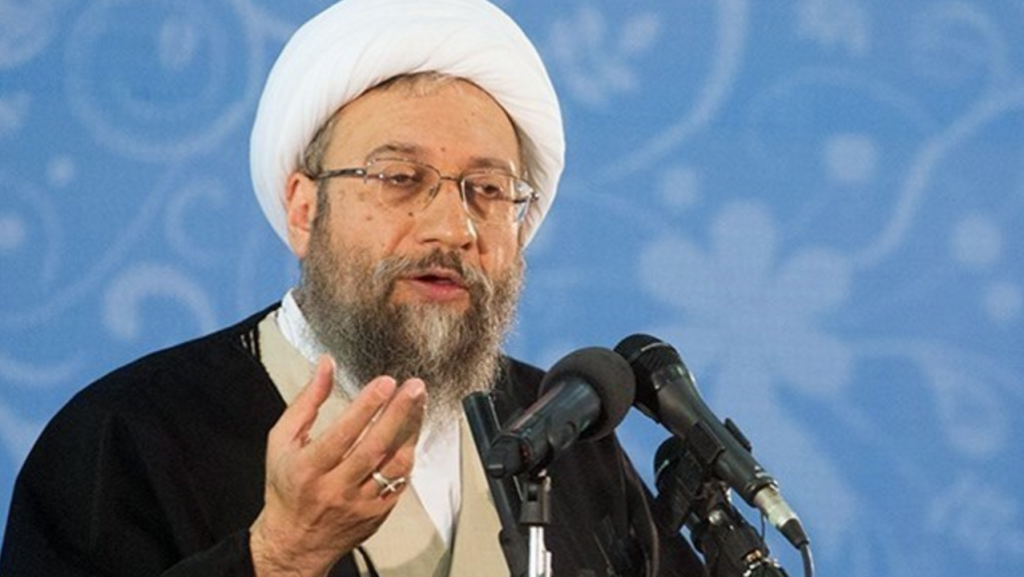 The majority of Iran’s MPs have signed a proposal to amend a current law that would make it harder to condemn drug-related criminals to death, according to Jalil Rahimi Jahanabadi, a member of Parliament’s Legal and Judicial Committee. He told the state ISNA news agency on October 4 that the amendment, signed by more than 150 MPs, was ready to be handed to the full Parliament for deliberation.
The majority of Iran’s MPs have signed a proposal to amend a current law that would make it harder to condemn drug-related criminals to death, according to Jalil Rahimi Jahanabadi, a member of Parliament’s Legal and Judicial Committee. He told the state ISNA news agency on October 4 that the amendment, signed by more than 150 MPs, was ready to be handed to the full Parliament for deliberation.
“The large majority of those who have been executed or are on death row are petty dealers who are first-time offenders and their deaths harms families,” Jahanabadi said. “In essence we are proposing to add an amendment to the current law for fighting drugs which states that the death penalty would apply if certain conditions are met, such as carrying and using a gun, or being an international drug kingpin, or having a commuted death sentence and repeating the crime,” he added.
“There a lot of people waiting to be hanged right now and the question is whether all these executions carried out so far have stopped the spread of drugs or not? If there haven’t been any benefits, we need to think of alternative punishments,” he added.
The MP’s comments come less than a week after the head of Iran’s Judiciary, Sadegh Larijani, rejected criticism of the Islamic Republic’s high execution rate of drug offenders and called for the swift execution of those who have been convicted of the crime.
“Naturally, executions are not an ideal solution, but we need to act quickly and firmly against harms to society and the destruction of families [caused by drugs],” said Larijani on September 29, 2016. “I ask prosecutors across the country to carry out executions as soon as the verdicts are issued.”
“We don’t think that the laws concerning drug trafficking are revelations from God. They are man-made laws that have not had perfect results. But it’s wrong to say that executions have had no effect,” Larijani added. “If the Judiciary had not been strict, we would have been in a far worse situation.”
In 2015, Iran executed 1,052 people—the highest per capita execution rate in the world. The vast majority of these executions are for drug-related crimes—more than 70 percent, said Mohammad Javad Larijani, the head of the Iranian Judiciary’s Human Rights Council, in 2013.
“My personal opinion is that there should be some practical changes to the laws related to the fight against drugs. This has to go through the legislative process, but until then, westerners should respect our current laws,” added Mohammad Javad Larijani—Sadegh Larijani’s brother.
The Parliament recently reopened debate to end capital punishment for most drug-related crimes. In a major shift away from current policy, more than 70 Members of Parliament (MPs) presented a bill in 2015 to reduce the punishment for drug trafficking from death to life imprisonment. The bill is still pending.
“The Islamic Republic of Iran is paying a heavy price in the fight against drugs that are transported to Europe. The highest number of executions in the country are related to this issue. Therefore, a group of MPs have called for an end to capital punishment for drug-related crimes,” said Mir-Hadi Gharaseyyed Romiani, a member of the Justice and Legal Affairs Committee, on November 8, 2015.
MP Hassan Norouzi, the spokesperson for the Judiciary Committee, said on September 26, 2016 that the committee was studying a proposal and considering possible alternative punishments recommended by legal experts.
UN officials have repeatedly voiced concern over Iran’s use of the death penalty in drug-related convictions. Under international law, the use of the death penalty is restricted to only the “most serious” crimes, and the UN special rapporteur on extrajudicial, summary or arbitrary executions has explicitly stated that drug-related crimes do not meet this criterion.
Nevertheless, drug offenders are routinely sentenced to death and executed in Iran. Human rights activists as well as legal experts meanwhile argue that Iran’s tough anti-drug laws have not resulted in any reduction in drug-related crimes.
“A review of the number of drug-related executions must be conducted. We observe that, unfortunately, the issue [of drug trafficking] continues in our country. Therefore, we must say that intensifying the punishment is not preventive,” said prominent Iranian lawyer Nemat Ahmadi in April 2015. “More than 270,000 prisoners or two-thirds of the country’s prison population are being held for drug-related crimes, and executions have not solved the problem.”
A senior aide to President Hassan Rouhani, Vice President for Women and Family Affairs Shahindokht Mowlaverdi, was summoned by the Judiciary when she noted in an interview that all the men in one village had been hanged for drug trafficking.
“We have a village in Sistan and Baluchistan province where all the men have been executed,” she told the semi-official Mehr News Agency on February 23, 2016. “Their survivors are potential drug traffickers as they would want to seek revenge and provide money for their families. There is no support for these people.”
Sistan and Baluchistan is one of Iran’s poorest provinces and has one of the highest numbers of executions per capita in the country.
In March 2016, the UN Special Rapporteur for human rights in Iran, Ahmed Shaheed, criticized the high number of executions in Iran for non-violent drug-related offenses in a report, noting that changes in Iran’s drug laws in 2010 increased to 17 the number of drug offenses that could be punished by death.

